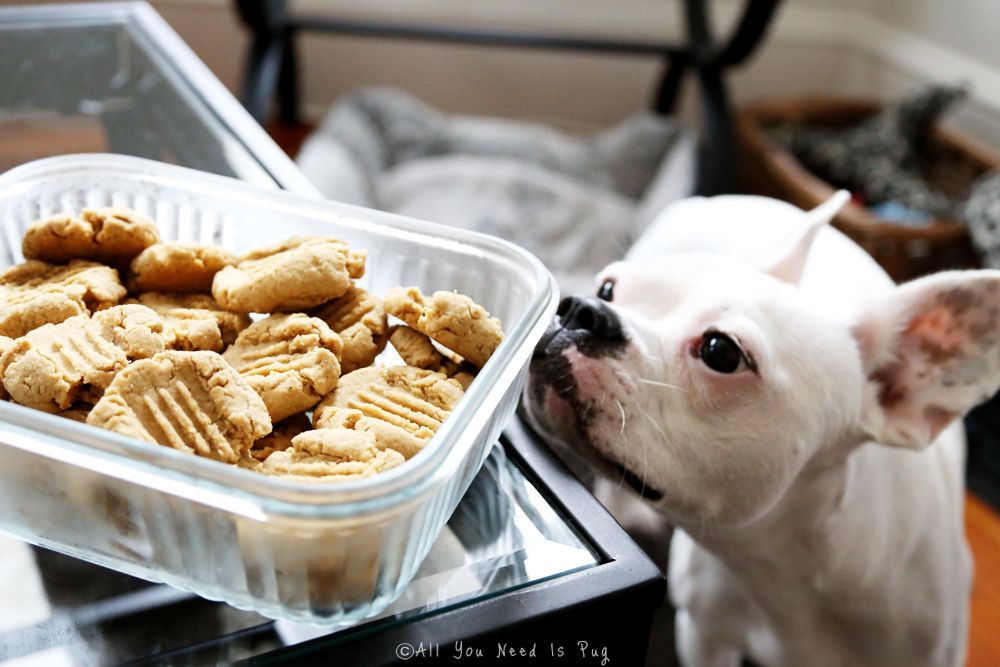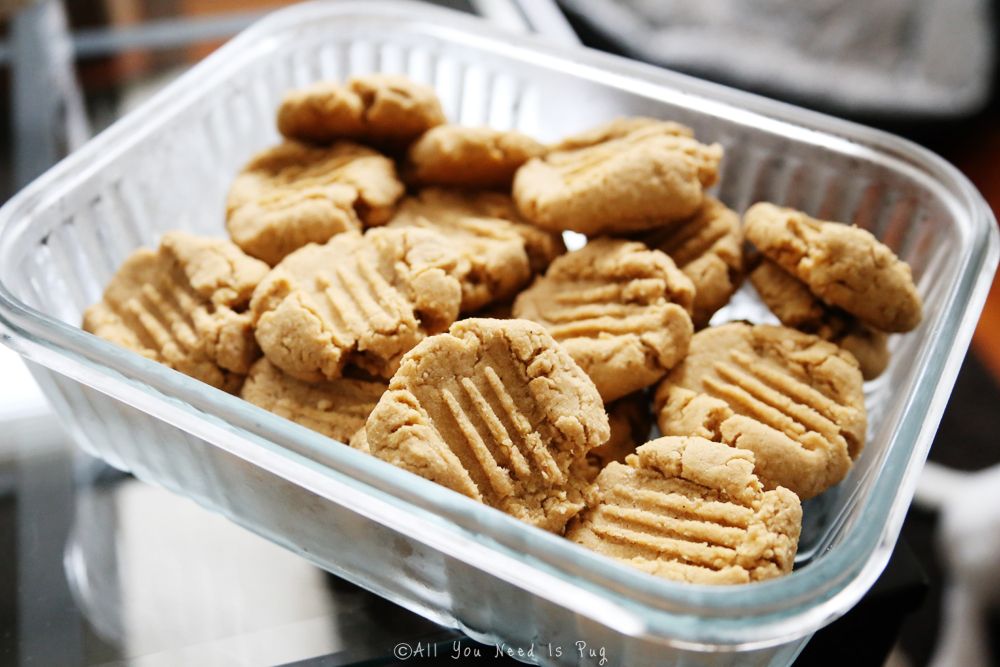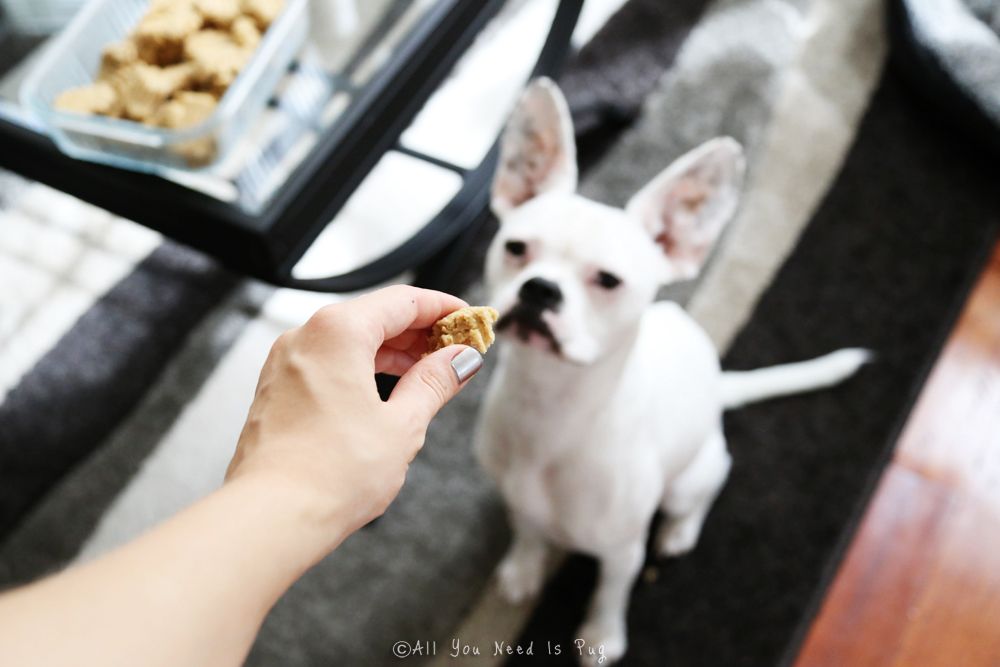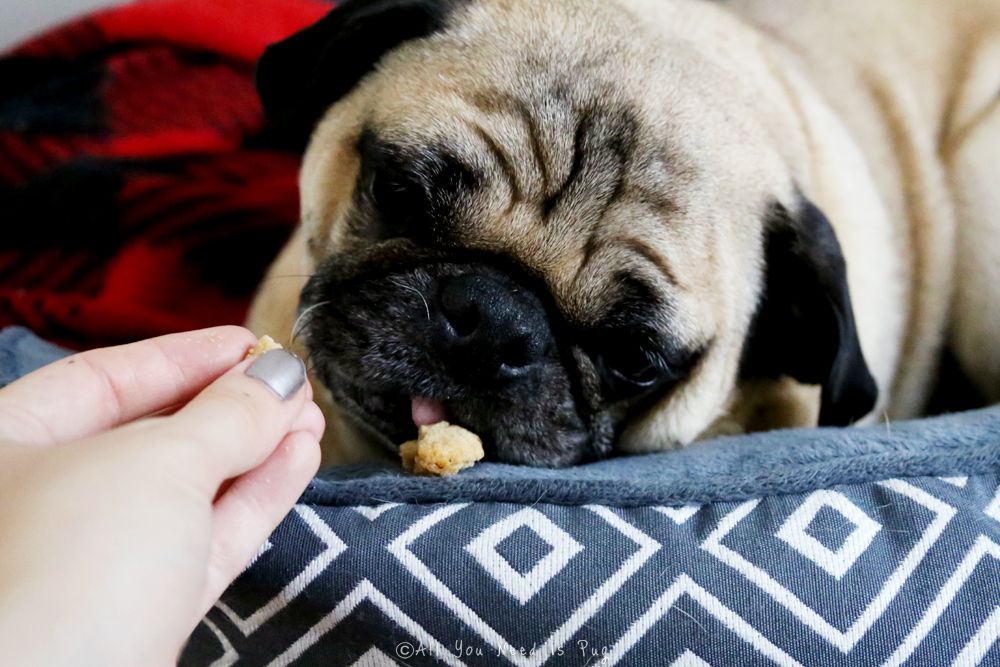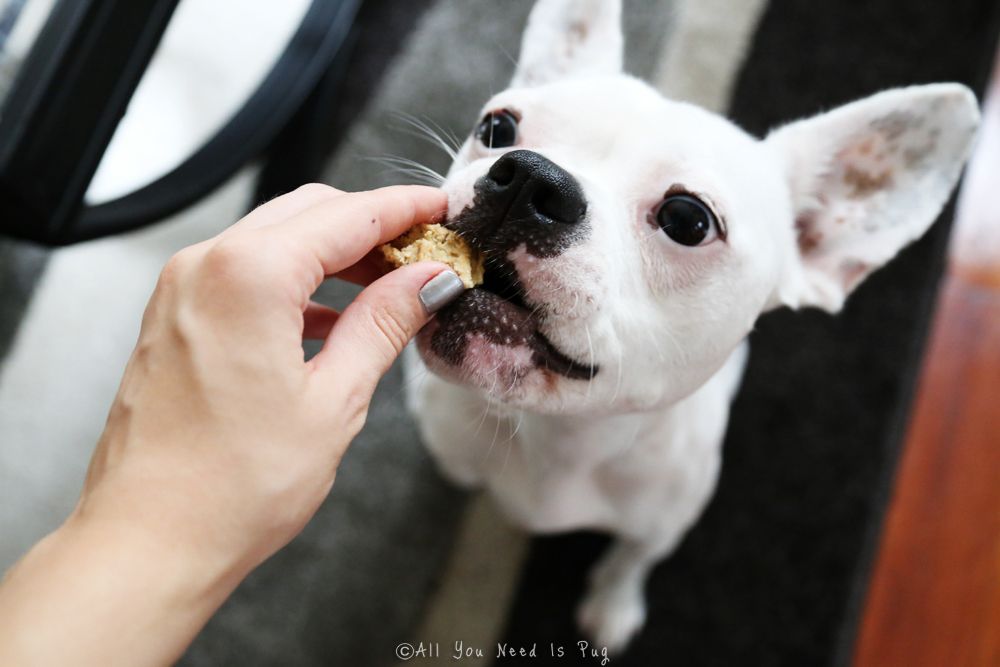
Between the 3 dogs in our family, there are about half a dozen food sensitivities and allergies that we grapple with as we do our best to give them the nutrition that they need. While dealing with allergies to chicken, wheat, eggs, and more, it can be hard for us to find snacks that the boys are both able to have and enjoy. As we mentioned in a previous post, we home-cook our dogs’ meals and recently decided to bake the bulk of their snacks in our own kitchen as well. A recent favorite in our cookie jar is the Salmon Snacker. This cookie is soft and savory, and sure to be a crowd-pleaser among your canine companions. Follow our recipe, or adjust it to suit your pet’s personal needs.
SALMON SNACKERS DOG SNACK RECIPE
(makes 2-3 dozen cookies, depending on size)
Ingredients:
- 13-14 oz. of canned wild-caught salmon, undrained
- ½ cup olive oil
- 1 egg
- 3 cups brown rice flour
- 1 cup oat bran
- 1 cup filtered water
Directions:
- Preheat oven to 350°F and grease a cookie sheet with non-stick cooking spray.
- Place salmon and the liquid inside of the can in a food processor. Add oil and filtered water and process until the mixture is a smooth, liquid consistency.
- In a bowl, use a fork to mix the flour and oat bran. Add the liquefied salmon to the flour mixture and stir until you have an evenly textured soft dough.
- Pinch pieces of dough off of your dough mound and roll them in your hands to create golf ball sized pieces. Place the balls of dough on your baking sheet and press down with your palm to flatten each ball. You can also use a fork (as we have done) or other utensil to press the balls down and give them a nice, textured finish.
- Bake the cookies for 30 minutes, or until firm and lightly golden in color.
- Once cool, store cookies in a sealed container and refrigerate.
Disclaimer: As always, you should be aware of your pet’s health and consult a vet before making any changes to his or her diet, especially if your dog suffers from a disease or illness or takes medications. I am not a vet or animal nutritionist, nor am I responsible for the decisions you make regarding your pet’s diet. Keep in mind that all pets are different and will respond differently to dietary changes. You should be aware of your pet’s allergies, sensitivities, and medical history. Be sure to take the time to learn the foods that are safe for dogs to consume as well as those that are dangerous for dogs to consume before attempting to cook for your pet.
